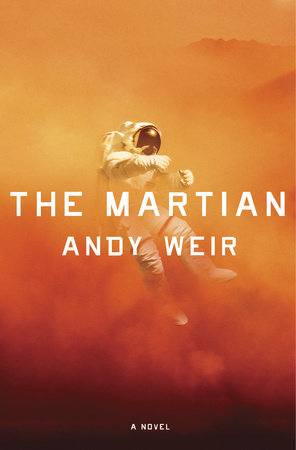Originally posted on Novel Writing Festival: PITCH: Title: The Vorbing Written by: Stewart Stafford Type: Novel Genre: Fantasy/Horror Logline: The Vorbing is a fantasy/horror concerning Vlad Ingisbohr’s struggle to free his village from the reign of terror of vampires and avenge his father’s death at their hands. Interested in this logline, please email us at…
Category Archives: eBook sales
Imagination Vs Technology – The Writer’s 21st-Century Faustian Pact?

Imaginary things take time to write. Fantasy and horror and, to a lesser extent, science fiction can be among the toughest genres to write as they are works of pure imagination. Science fiction can be slightly researched and current trends can be followed to their logical conclusion. Educated guesses can be made as to what direction science will go in. Fantasy and horror mostly comprise world-building from scratch and, depending on the writer, the concepts can take time to generate.
Added to that, readers want new product yesterday. They’ve become ultra-impatient in the internet age. Some of them even refuse to read the first book in a series as they are unable to wait for the other books to be written and published. “Am I going to have to wait years for you to finish your Vorbing trilogy? I’m an impatient bitch,” one of my readers helpfully explained to me.
In their book, The Neuroscience of Clinical Psychiatry: The Pathophysiology of Behavior and Mental Illness, Edmund S. Higgins and Mark S. George note: “People who can delay gratification and control their impulses appear to achieve more in the long run. Attention and impulsivity are opposite sides of the same coin.” This is especially true of all those internet babies who have grown up in the technological age. So the internet is a bit like Brexit; we don’t know what the full implications of its arrival are yet.

The web has its advantages. It’s a phenomenal communication tool. Twitter has definitely made me think faster and streamline messages better, that is certain. As a way of quickly disseminating a message or a product worldwide immediately, the web takes some beating. The net is like a giant synthetic brain our thought patterns are connected to (a strength and a weakness that can be exploited). There are concerns over privacy and who is doing what with our data and those worries will only increase as time goes on.
Back to the writing. This awareness of the disintegration of attention spans has unquestionably changed both the method and style I employ when writing books. I started writing my first book when the internet was in its infancy. I was able to remain in the world I had created all day interacting with my characters. I was totally immersed in it and wouldn’t notice hours passing. Now social media, that great thief of time, eats up chunks of my day without me noticing hours passing. I mostly interact online with people I don’t know instead of my characters. I’m totally immersed in the internet. Writing is done now in feverish bursts to meet my daily word count so I can get back online. Experience has enabled me to do much more in less time though. I no longer need to spend all day going down blind alleys trying to find myself creatively. So perhaps there is no damage done there.
There are writers who have given up social media for a month to get books out there. I’d be concerned about losing half my hard-earned followers. You can’t expect people to continue following you if you’re offline for weeks. Especially if you’re a self-published writer dependent on social media to market your books. It appears to be a 21st-century Faustian pact with the web.
Then there is the pace of the novel itself. I am only too aware that if you fail to hold the attention of your readers, social media is tickling their ears non-stop to woo them away. So they’re dealing with getting their electronic fix too (especially if they’re consuming your book on an e-reader or smartphone app that’s connected to the internet and the ejector seat button for your novel is half an inch away). The pacing of a novel has to match the online frenzy going on out there or you’re toast. Then again, if the flour is going rotten to begin with, maybe the quality of the toast isn’t so important these days. We shall see.
So the internet has rewired our brains, changed our expectations and how books are written, edited, sold and read (or not as the case may be). What form will books take in 2026? 2036? 2066? Will we be taking downloads directly into our brains as in a William Gibson cyberpunk novel? I have a saying: “The possible is just the impossible that we’ve come to accept.” It will happen.
My novel “The Vorbing” is available here
© Stewart Stafford, 2016. All rights reserved.
Indie Authors: The New Punks

We’ve all heard about the self-publishing revolution in books in the last few years with Amazon Kindle and all the other e-readers and websites. I was watching a BBC documentary called ArtsNight last week and the presenter made an interesting point: punk rock bands were the first indie authors. They learned their three chords, set up their own bands and, in some cases, record labels and self-published their own music. They took control of their own destinies in the same way novelists did recently. Even the punk fanzines were do-it-yourself wonders; stapled together, photocopied and distributed through record stores, mailing lists, by hand and by word-of-mouth in those pre-pre-internet days.
It’s a very cogent analogy. As with the self-published books, some of the DIY punk music that was put out was awful, but some of it has reached classic status in hindsight. Self-publishing until recently was called “vanity publishing,” but writers were no longer prepared to sit on their hands waiting months for a form rejection letter. They too seized their own destinies through the technology that was around them and turned the publishing industry on its head.

Movies are even being made from self-published books for the first time like Ridley Scott’s The Martian starring Matt Damon and a future fantasy film that 20th Century Fox has purchased the rights to called Fall of Gods (even after that movie deal was signed, the book was taken down from Amazon due to formatting issues, the bane of indie authors everywhere. Luckily, it didn’t impact on the movie deal and Fox could see the merit of what was there despite the flaws.)

Punks and indie authors are strange bedfellows indeed, but both groups were and are pioneers in their fields. While the punk movement didn’t manage to overthrow the mainstream in the same way hippies in the previous generation hadn’t, they democratised their art form and showed others what was possible with self-belief and a little effort. Just as indie authors did. The shockwaves of the indie author revolution are still spreading out from the epicentre and nobody really knows where it will stop or what comes next. The most important thing is that books that would have gathered dust in drawers and on hard drives and memory sticks are now finding a worldwide audience. That can only be a good thing.
© Stewart Stafford, 2016. All rights reserved.
In Pursuit of the Mighty Whoosh: The 21st Century Writer
Being a writer in the 21st century is like being the driver of a very jerkily-driven vehicle. You’ve dreamt up ideas, written them, shaped them, rewritten and edited them and published them. Then you have to switch hats and sell your work. Now you find yourself measuring your book’s merit and your own self-worth by reviews, ratings, rankings, likes, shares, follows, analytics and sales. If they rise, your confidence rockets with them. If they mysteriously drop, you become frozen with doubt. You can control your writing up to a point. After that, it’s up to readers, reviewers and bloggers to spread the word. You can’t make people buy something they don’t want no matter what social marketing gurus say (who are biased witnesses involved in the hard sell).
It is healthy to get away from that draining stuff for a while. Major writers have people to handle sales of their work. They have agents, managers and the might of publishing houses behind them with their huge advertising budgets and key media contacts. Self-published writers only have themselves and their savings to rely on. That only goes so far unless they have great connections or access to bigger sums of money. If not, they may have to accept defeat on their beloved project when the cash runs out.
Some people say make your own luck but if everyone could do that, we’d all be successful. Life is never that simple or easy. Luck is mostly being in the right place at the right time. The wind catches your sails and whoosh, you’re off. Nobody can plan for that. It just happens. Word of mouth is another way. A neglected work slowly begins to pick up. Sales rise, reviews become more plentiful and positive and you’ve caught the Mighty Whoosh again.
Being an author now is a marathon, not a sprint. The idea that you could hit the send button, publish your book and it would become an instant bestseller really is a fantasy. It will take many months, if not years, to build up a loyal readership and a solid body of work. There is even the possibility of posthumous recognition Van Gogh-style. To become rich and famous when you’re no longer around to enjoy it would be cruel but better late than never. At least your heirs may benefit from your delayed Mighty Whoosh.
© Stewart Stafford, 2015. All rights reserved.
The Imprints Strike Back
Surprising article that Waterstones bookstores say that Kindle sales have “disappeared to all intents and purposes.” http://www.msn.com/en-gb/news/other/kindle-sales-have-disappeared-says-uks-largest-book-retailer/ar-BBhBuHZ?ocid=mailsignoutmd



